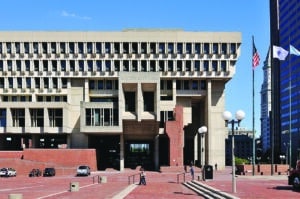Boston Mayor Marty Walsh is throwing his support behind changes to the city’s zoning code that would promote fair housing policies, including a review of small projects along with major developments.
District 1 City Councilor Lydia Edwards has lobbied for a fair housing amendment to fight racial, ethnic and economic segregation by requiring officials to consider factors such as displacement when reviewing developments. On Friday, representatives of the administration and Boston Planning & Development Agency said they support the measure, including applying the rules to small development projects.
“The city of Boston will lead the nation. We’ll have the first zoning amendment for fair housing in the United States when we’re done, so happy Juneteenth,” Edwards said at a City Council working session.
While the administration’s version has several differences in language and scope, Edwards said councilors and administration officials have discussed a timeline for approval of a final version by September.
The zoning amendment also would affect projects approved under a planned development area (PDA), which offers greater density for large and complex projects. The requirements include community benefits such as job training programs for low-income residents, affordable child care for residents and open space requirements.
It’s not clear whether the changes will apply to the massive Suffolk Downs redevelopment in the East Boston portion of Edwards’ district, which would be subject to approval under a PDA.
“Regardless, the councilor will continue to advocate for the Suffolk Downs PDA to affirmatively further fair housing, remove barriers to housing choice, and address displacement,” Edwards spokesman Ricardo Patron said in an email.
District 2 Councilor Ed Flynn said the changes could stem the flow of displacement caused by rising rents and home prices.
“I want to make sure Chinatown remains a neighborhood of immigrants, a place that’s always welcoming for low-income families,” Flynn said. “We see great wealth in the city and great buildings going up, and I’m not impressed by that. Can we give a home or an apartment to an immigrant or a senior?”
The new policies are designed to counteract ethnic and economic segregation, some of which was accelerated by urban renewal projects that displaced low-income residents, Edwards said in the proposal initially submitted last fall.
“Collectively, these practices help explain why, now, as Boston is in the midst of an affordable housing crisis, the communities most harmed by displacement, eviction and housing instability are low-income communities ofcolor, that bore the earlier harms of urban renewal and disinvestment,” Edwards wrote.
The Boston Zoning Commission has final say over approval of the amendments.




 |
| 



